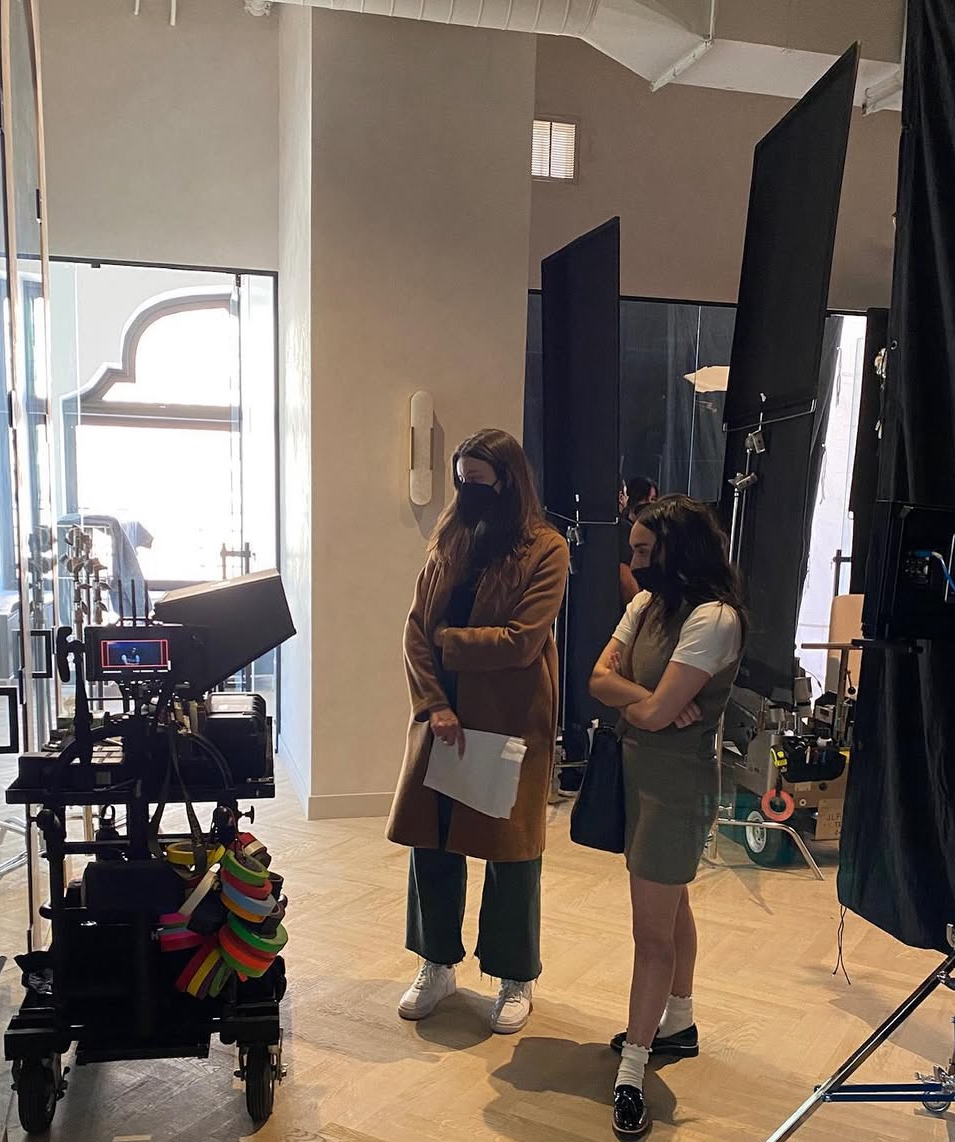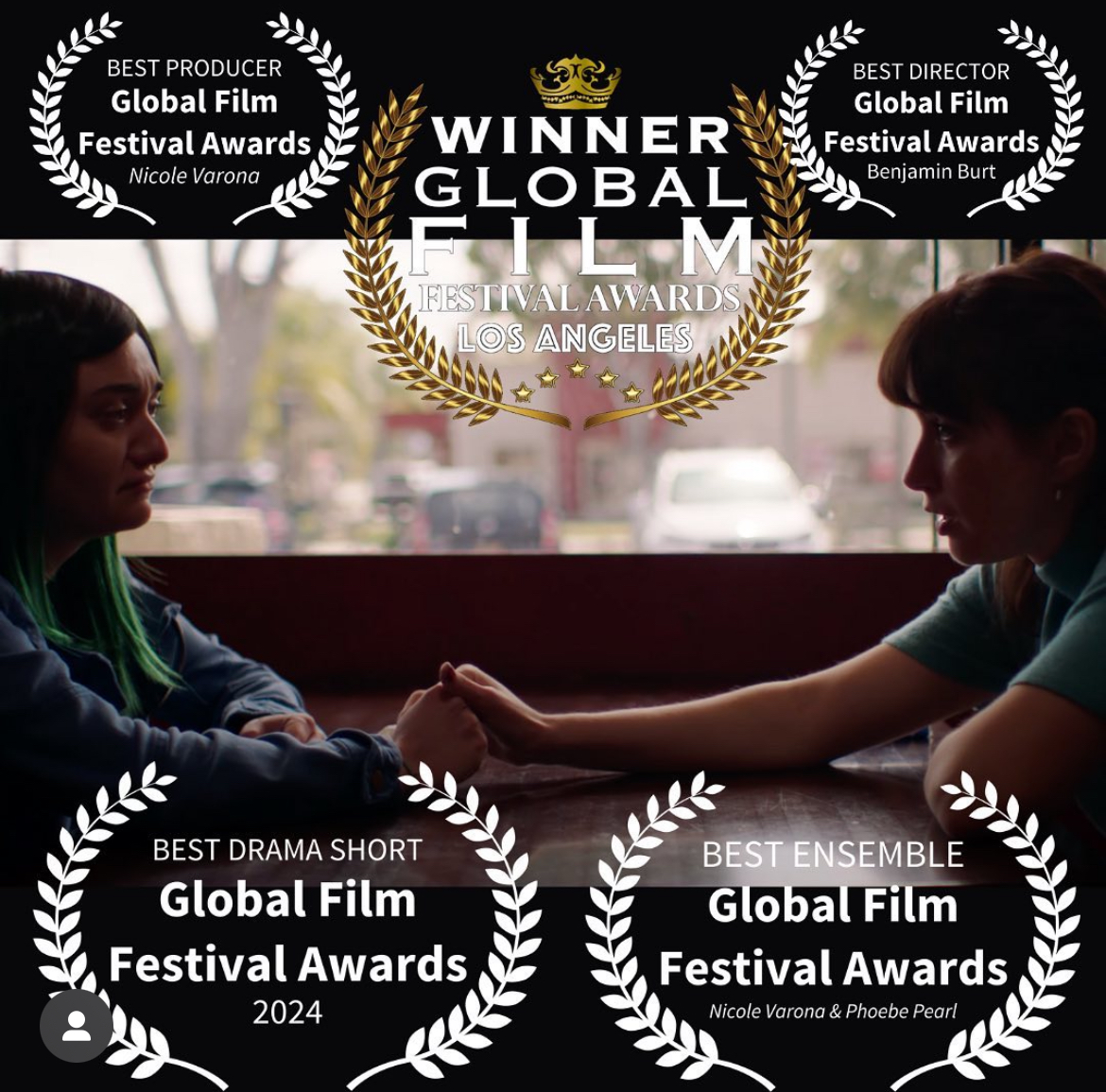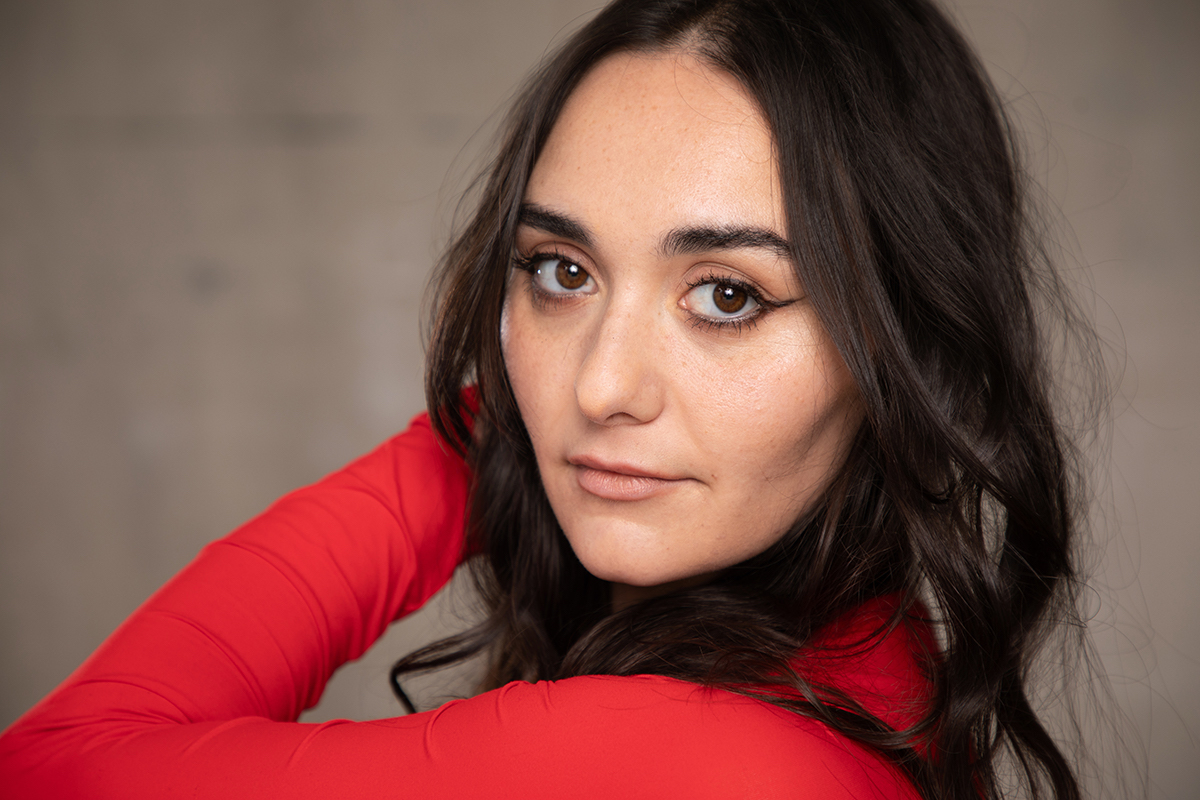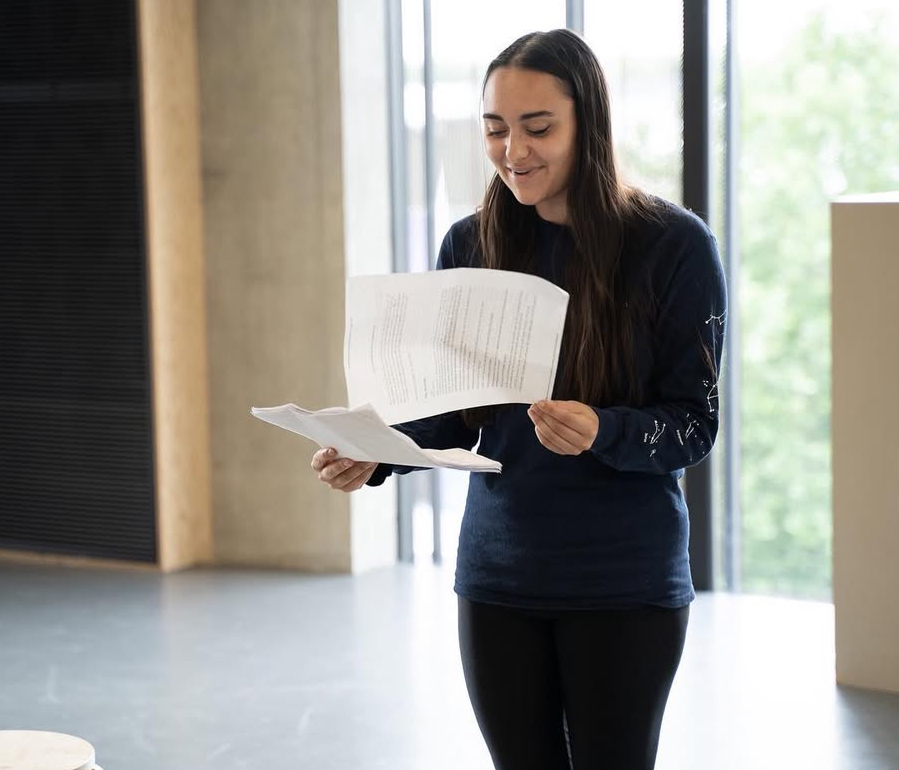We caught up with the brilliant and insightful Nicole a few weeks ago and have shared our conversation below.
Nicole, looking forward to hearing all of your stories today. Can you talk to us about a project that’s meant a lot to you?
The most meaningful project I’ve worked on was my first play, Bit of Sunshine. I wrote it when I was 18, scribbling from start to finish in a spiral notebook I picked up at a grocery store. I had never written a play before, but I felt an undeniable urgency to get the story out of me. In my second year of drama school in the UK, I decided to revisit it. I shared the script with two of my closest friends at school, Katie Coull and Ed Theakston, who would later go on to co-found the award-winning theatre company We Are Kilter. I asked them to read it, with no expectations, simply to see if the material resonated with them—and only if it did, whether they might consider directing it. Looking back, I believe it was fated that I brought the script to them. They said yes. They were (and still are) rare artistic forces—so deeply in sync with one another that they practically finished each other’s sentences. I trusted them completely. I knew they would bring the story to life, but what I didn’t know was how they would infuse and elevate my words in ways I never could have imagined. Since I was both the writer and the actor, I approached the process by intentionally separating myself: offering the script as the playwright, then stepping fully into the role of the performer. There is a special kind of magic that happens when you trust your collaborators so implicitly that you allow the work to breathe itself to life through their hands. The play won Best New Play at the Stockwell Playhouse One Act Festival in 2016. That same summer, we took Bit of Sunshine to the Edinburgh Fringe for a one-week run. It was completely self-produced, low-budget, and carried forward on nothing but heart. I’d never taken a show to Edinburgh before, and I was scared. What if no one wanted to hear this story? What if we couldn’t draw an audience? What if it was all for nothing? But we sold out our shows and received five-star reviews and critical acclaim.
Although the play was fictional, it was lightly inspired by my own experience with an eating disorder when I was younger. It followed a girl named Kara, desperate to get into Oxford—the alma mater of her late parents—while secretly battling the illness that haunted her life. At its core, it explored grief, control, and identity.
In writing it, I wanted to tell a different kind of story about eating disorders—one I had never seen depicted onstage or in film. Something messy, uncomfortable, unvarnished. What happens behind closed doors? What happens if there’s no one to notice, no one to intervene? I worried that the subject matter might be too confronting for audiences. But the response was deeply humbling. People left the theater in tears. Many stayed behind to talk to us. Strangers—of all genders, ages, and backgrounds—told us they felt seen. Or that it helped them understand something they hadn’t before.
It was raw, honest, and healing—not just for me, but for others too. Bit of Sunshine has gone on to have several lives in different venues and forms, but nothing compares to that first generative experience of creating something deeply personal, trusting collaborators I love, and witnessing the way storytelling can move people. That’s still the standard I hold myself to.

Great, appreciate you sharing that with us. Before we ask you to share more of your insights, can you take a moment to introduce yourself and how you got to where you are today to our readers.
I’m a writer and actor with a deep love for emotionally honest storytelling. I trained in the UK at the Royal Academy of Dramatic Art (RADA) and East 15 Acting School, where I earned my BA in Acting, and later received my Master’s in Writing for Stage and Broadcast Media from the Royal Central School of Speech and Drama in London.
I started writing when I was 18—not because I planned to, but because I had something I needed to express. My first play, Bit of Sunshine, was written in a spiral notebook and eventually performed at the Stockwell Playhouse Festival, where it won Best New Play. We later took it to the Edinburgh Fringe. That experience showed me how powerful storytelling can be—not just for the person creating it, but for those who see themselves in it.
Since then, I’ve continued writing and acting, with a focus on emotionally grounded stories that explore identity, mental health, grief, and the quiet contradictions of being human. I’m drawn to characters who are complex, flawed, and trying their best to hold things together.
More recently, my short film Someday really ignited something new for me. I’d always loved acting for the camera, but writing for it opened up a different kind of creative joy. There’s something about the camera and how it can reach into someone’s soul that I’m excited to explore more.
What matters most to me is making work that feels true. If someone watches something I’ve written or performed and says they felt seen—that’s everything to me. My hope is to keep telling stories that resonate, invite empathy, and help people feel just a little less alone.
We often hear about learning lessons – but just as important is unlearning lessons. Have you ever had to unlearn a lesson?
One of the biggest stories I had to unlearn was the belief that if you’re talented enough and work hard enough, success—or even visibility—will naturally follow.
When I first graduated from drama school and moved to Los Angeles, I truly believed that my training and my faith in my abilities would be enough to open doors. I thought that being “good” would speak for itself. But through the realities of the business—navigating COVID, the strikes, long stretches between auditions, and the sheer unpredictability of it all—I came to realize that talent alone isn’t always what gets recognized. Timing, access, and luck often play just as big a role. At first, that realization was painful. It made me question if I was on the right path. There were moments when I wondered if I should give up, or pivot into something else entirely.
But underneath that disillusionment was a deeper gift: I realized I can’t wait for someone else’s permission to feel whole. I have to stay connected to the stories I want to tell, and to the part of me that lights up when I’m creating—whether or not anyone else is watching. That shift in mindset changed everything. I stopped thinking of the industry as something I had to wait on, and started seeing it as a landscape I could move through on my own terms—creating the work I believe in, with people who inspire me. That’s what keeps me going.

Is there a particular goal or mission driving your creative journey?
When I was younger and dreamed of being an actor, I used to say that I wanted to touch people’s souls. I remember moving to London and seeing something onstage that moved me so deeply it stayed with me for days—and I knew then that I wanted to be part of that kind of storytelling. That was the spark.
As I’ve grown older and navigated the realities of being a creative in an industry often driven by commercial success, I’ve had to realign with what truly matters to me. I’ve realized that my mission isn’t about accolades or approval—it’s about creating work that reminds people they’re not alone. I want to tell stories that shine a light in the dark. Stories that say: even in your most painful or shameful moments, there is still beauty. There is still connection. There is still hope. The human experience can be so difficult, so isolating at times. But I believe that when art makes someone feel truly seen, it can change everything. It can be a kind of quiet revolution—one soul at a time. And I believe it’s the artist’s responsibility to create from that place: not just to entertain, but to reflect the truth, to offer belonging, and to help people find themselves again when they feel lost.
Contact Info:
- Instagram: @nicolevarona_

Image Credits
Photo in red top by Dana Patrick


